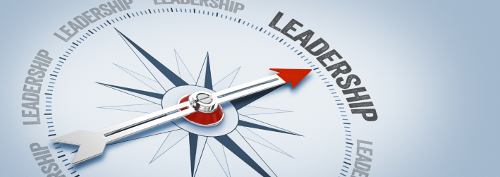You are viewing our site as an Agent, Switch Your View:
Agent | Broker Reset Filters to Default Back to ListTips to Creating Enduring Leadership Practices
September 09 2018
 Having strong leadership skills can make all the difference when growing and cultivating your team. During a recent webinar, author, coach and speaker Coni Meyers shared how agents can become more resilient, identify new ways to collaborate, improve problem solving, decision-making and managing stress.
Having strong leadership skills can make all the difference when growing and cultivating your team. During a recent webinar, author, coach and speaker Coni Meyers shared how agents can become more resilient, identify new ways to collaborate, improve problem solving, decision-making and managing stress.
Whether you're a new or experienced agent, these leadership practices will help you become a better, more empathetic, and effective leader.
Using mindfulness as a leader will help you attract your tribe.
Mindfulness can help you build your team and increase your bottom line, so you have more time to focus on the things you want to do. Coni explained that great leadership is about supporting others, so they go beyond ourselves.
Happiness vs. Success
"Success is not the key to happiness. Happiness is the key to success. If you love what you are doing, you will be successful." –Albert Schweitzer.
The first tool you need to have as a leader is to come from a place of happiness and passion. This will determine the type of people and team members you attract. Scientific studies have shown that people who come from a true place of happiness are 31 percent more productive and 37 percent better at sales. Additionally, 10 percent of our happiness comes from external influences and 90 percent is caused by your mindset – meaning YOU can change your own reality and mindfulness.
Coni shared five exercises you can do to increase your positivity:
- Showing gratitude
- Journaling
- Exercising
- Meditating
- Performing "Acts of kindness"
Emotional Intelligence (EQ)
The first step to achieving emotional intelligence is self-awareness. It's the ability to understand our own emotions and understand the emotions of others and manage it. Emotional Intelligence author Daniel Goleman found that EQ accounts for 67 percent of the skills we need to be a top leader. Once we become aware of our emotions, we must learn to manage them and our team accordingly.
Empathy (cognitive and emotional) and engagement are another crucial piece of emotional intelligence. Cognitive empathy is when we can see the world through others' eyes. As an agent, that might be seeing your client's dream home through their own eyes and understanding what they want it to look like. Emotional empathy includes understanding and empathizing how emotional (both happy or sad) the purchase or sale of a home could be for your clients. Having both cognitive and emotional empathy will impact the engagement and communication you will have when working with them.
Having emotional intelligence will allow you to attain a higher level of financial success, develop a better organizational culture and create a more productive workforce. Emotional intelligence distinguishes great leaders from average ones. It is learned, versus IQ which is genetic.
Self-management
There are five different areas of self-management:
- Stress – Using mindfulness practices to reduce your stress can make a big difference.
- Organization – The more organized we are, the better off we will be in managing ourselves.
- Decision making – Reduced stress and increased organization will help you make better decisions and allow you to help others (e.g., your clients and team members) do the same.
- Problem solving – A key component of problem solving is having a key vision of our desired outcome.
- Time management – When it comes to time management, it's about how to incorporate the things we need to do into the time we have, that will help us move forward. Another key component of self-management is listening.
Coni shared five simple mindfulness practices which included:
- Taking 10 minutes to yourself in the morning.
- Every 1-2 hours take 1-2 minutes to breathe.
- Before a meeting or taking a phone call, take a few minutes to prepare.
- Start meetings discussing something personal to help clear everyone's minds.
- Take five minutes to yourself to breathe and reflect at the end of the day before racing out of the office.
By improving your mindfulness, you will become a more effective leader, improve your bottom line and save time for you and your team.
Watch the full webinar here and download Coni's workbook to improve your leadership skills.
To view the original article, visit the ReferralExchange blog.









